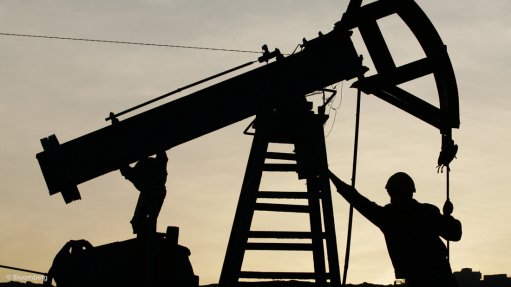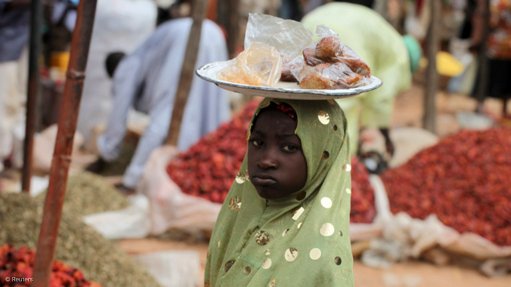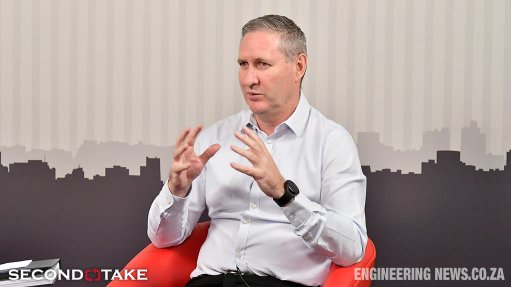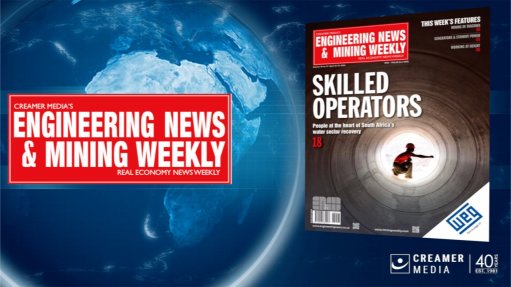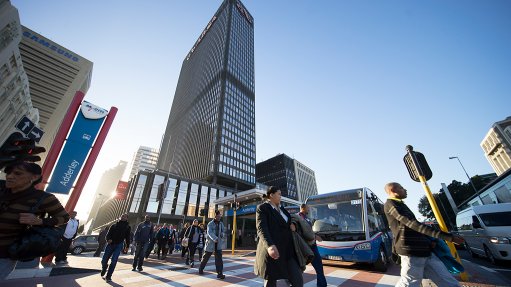Manufacturing challenges high on the agenda of inaugural MEIndaba

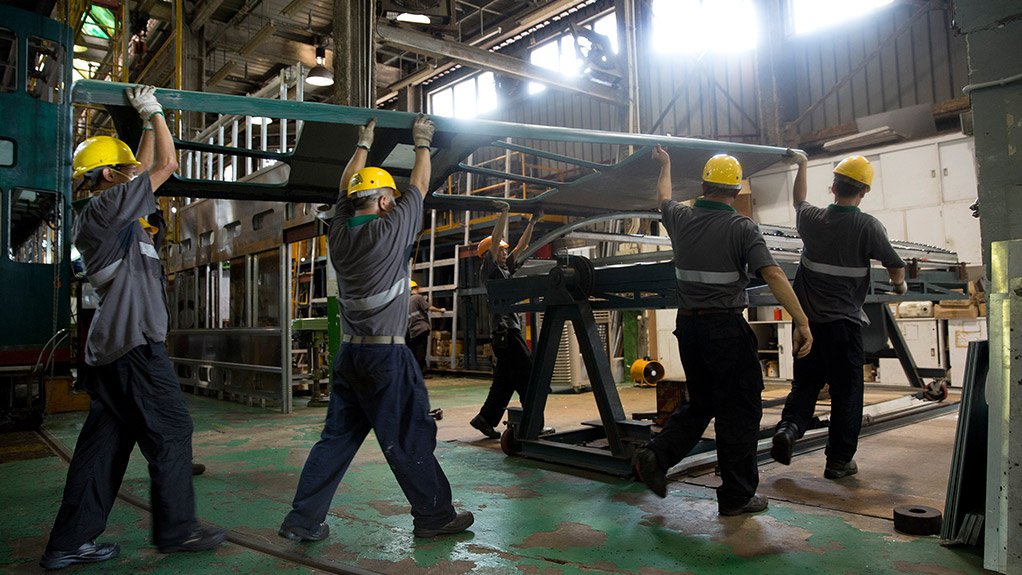
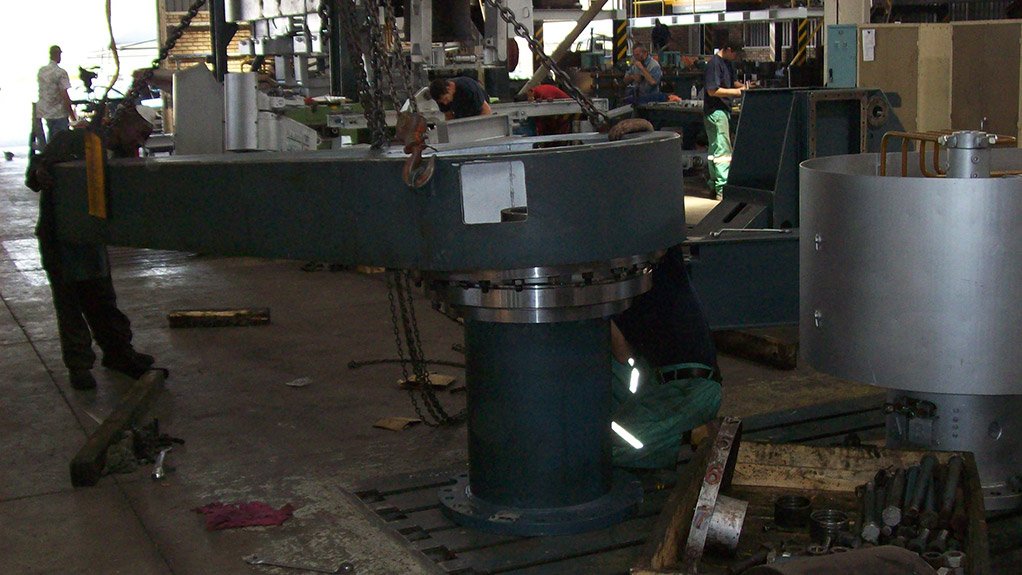
IMPORT THREAT Cheap imports from Asia is currently the most significant challenge facing South Africa’s metals and engineering sector
Photo by Bloomberg
BATTLING FOR MANUFACTURING South Africa’s poor performing manufacturing sector will be discussed at the inaugural Metals and Engineering Indaba
The Steel and Engineering Industries Federation of Southern Africa (Seifsa) is hosting the first annual Metals and Engineering Indaba (MEIndaba), from May 28 to 29 at Emperors Palace, in Johannesburg, to address the challenges that the metals and engineering sector faces.
Seifsa CEO Kaizer Nyatsumba tells Engineering News that the indaba was established because of the need to deal with the poor performance of the steel, engineering and local manufacturing sector in recent years.
“Businesses in the metals and engineering sector are struggling and have not had the opportunity to engage with the various industry stakeholders. It therefore became necessary to create a platform for the captains of industry, the labour leadership and policymakers to discuss matters of common interest to revive South Africa’s manufacturing sector,” he states.
Nyatsumba says the MEIndaba is expected to prove invaluable in ensuring that the metals and engineering sector stakeholders are of the “same mind” when tackling the major challenges of the sector, which include cheap imports, the lack of competitiveness and policy uncertainty.
“By far the most significant challenge that the sector currently faces is cheap imports, which is driving many South African manufacturers out of business,” he warns, adding that Asian manufacturers in particular are guilty of product dumping in South Africa – a practice whereby manufacturers export products at a significantly cheaper price than they would sell the same products in their own countries.
Nyatsumba states that the substantial population and subsequent workforce of China and India significantly reduces the cost of labour, providing manufacturers from these countries with the opportunity to control costs.
Further, he points out that Asian governments provide incentives, in the form of subsidies, for many Asian manufacturers to sell their goods internationally. However, South African manufacturers are not afforded the same incentives; therefore, Asian manufacturers have a significant cost advantage over local manufacturers.
Nyatsumba suggests that government should provide a “certain level of protection” for local manufacturers to enable them to compete with Asian manufacturers “on a level playing field”. He adds that government should also levy tariffs in cases where it can be proved that companies are dumping their goods to “ensure that local manufacturers can produce products competitively, which can then be sold domestically and internationally”.
He points out that this protection to manufacturers in the respective Asian countries promotes the stability and growth of their economies.
Indaba Programme
A plenary discussion – Striking a Healthy Balance between International Competition and Dumping – which aims to contextualise and address the issue for delegates, will be held on the first day of the MEIndaba.
A discussion on the future of South African manufacturing and whether there is still a business case for local manufacturing, will also take place on the same day. This will be followed by a session during which the National Development Plan (NDP), government’s level of commitment to actualise the NDP and the time-frames for rolling out projects to ensure local metals and engineering companies are prepared to compete for the opportunity to work on the projects will be discussed.
Day 1 will be concluded with a discussion on transformation and the absence of women in the metals and engineering sector. “The discussion will consider the strategies needed to ensure that there is greater transformation and that more women are attracted throughout the value chain of the metals and engineering sector,” Nyatsumba says.
He acknowledges that transformation in the sector has been a major concern, highlighting that the sector is known to be one of the least transformed sectors in South Africa. Transformation will, therefore, feature again on the agenda of the MEIndaba, opening the round of discussions on Day 2.
This will be followed by a session focussing on the significant infrastructure backlog in Southern Africa and how these projects will be funded.
South Africa’s level of competitiveness in the metals and engineering sector will also be discussed on Day 2, in an attempt to advise companies on available strategies through which they can improve their level of competitiveness. The session will also highlight the significant opportunities available to the metals and engineering sector in the rest of Africa. “The South African sector has very limited exports going to the US and Europe, and significant capacity can be taken up by projects under way on the continent,” Nyatsumba notes.
The final session of the MEIndaba will focus on industrial relations, particularly on what can be done differently to ensure that businesses and the workforce can effectively collaborate to meet the goals of the country’s NDP.
“We have to compete with other countries for investment, therefore, it is imperative that there is stability in our industrial relations and an improved partnership between labour and business,” he states.
MEIndaba Goals
Nyatsumba hopes that the MEIndaba will promote greater confidence in the future of South Africa’s manufacturing sector among all the metals and engineering sector stakeholders. “We hope that, through the robust engagements we expect to take place, there will be a shared understanding of the challenges and of what needs to be done to boost manufacturing.”
He adds that, while there are no expectations that the challenges will be resolved overnight, he hopes that stakeholders who attend the indaba will be determined to make the necessary changes to help promote manufacturing in South Africa.
“It is important for all stakeholders in the metals and engineering sector to seize the opportunity offered by the MEIndaba to come forward and discuss their concerns. The indaba is an important forum at which the various stakeholder groups can engage in a nonadversarial environment in the interests of South Africa,” Nyatsumba concludes.
Comments
Press Office
Announcements
What's On
Subscribe to improve your user experience...
Option 1 (equivalent of R125 a month):
Receive a weekly copy of Creamer Media's Engineering News & Mining Weekly magazine
(print copy for those in South Africa and e-magazine for those outside of South Africa)
Receive daily email newsletters
Access to full search results
Access archive of magazine back copies
Access to Projects in Progress
Access to ONE Research Report of your choice in PDF format
Option 2 (equivalent of R375 a month):
All benefits from Option 1
PLUS
Access to Creamer Media's Research Channel Africa for ALL Research Reports, in PDF format, on various industrial and mining sectors
including Electricity; Water; Energy Transition; Hydrogen; Roads, Rail and Ports; Coal; Gold; Platinum; Battery Metals; etc.
Already a subscriber?
Forgotten your password?
Receive weekly copy of Creamer Media's Engineering News & Mining Weekly magazine (print copy for those in South Africa and e-magazine for those outside of South Africa)
➕
Recieve daily email newsletters
➕
Access to full search results
➕
Access archive of magazine back copies
➕
Access to Projects in Progress
➕
Access to ONE Research Report of your choice in PDF format
RESEARCH CHANNEL AFRICA
R4500 (equivalent of R375 a month)
SUBSCRIBEAll benefits from Option 1
➕
Access to Creamer Media's Research Channel Africa for ALL Research Reports on various industrial and mining sectors, in PDF format, including on:
Electricity
➕
Water
➕
Energy Transition
➕
Hydrogen
➕
Roads, Rail and Ports
➕
Coal
➕
Gold
➕
Platinum
➕
Battery Metals
➕
etc.
Receive all benefits from Option 1 or Option 2 delivered to numerous people at your company
➕
Multiple User names and Passwords for simultaneous log-ins
➕
Intranet integration access to all in your organisation












